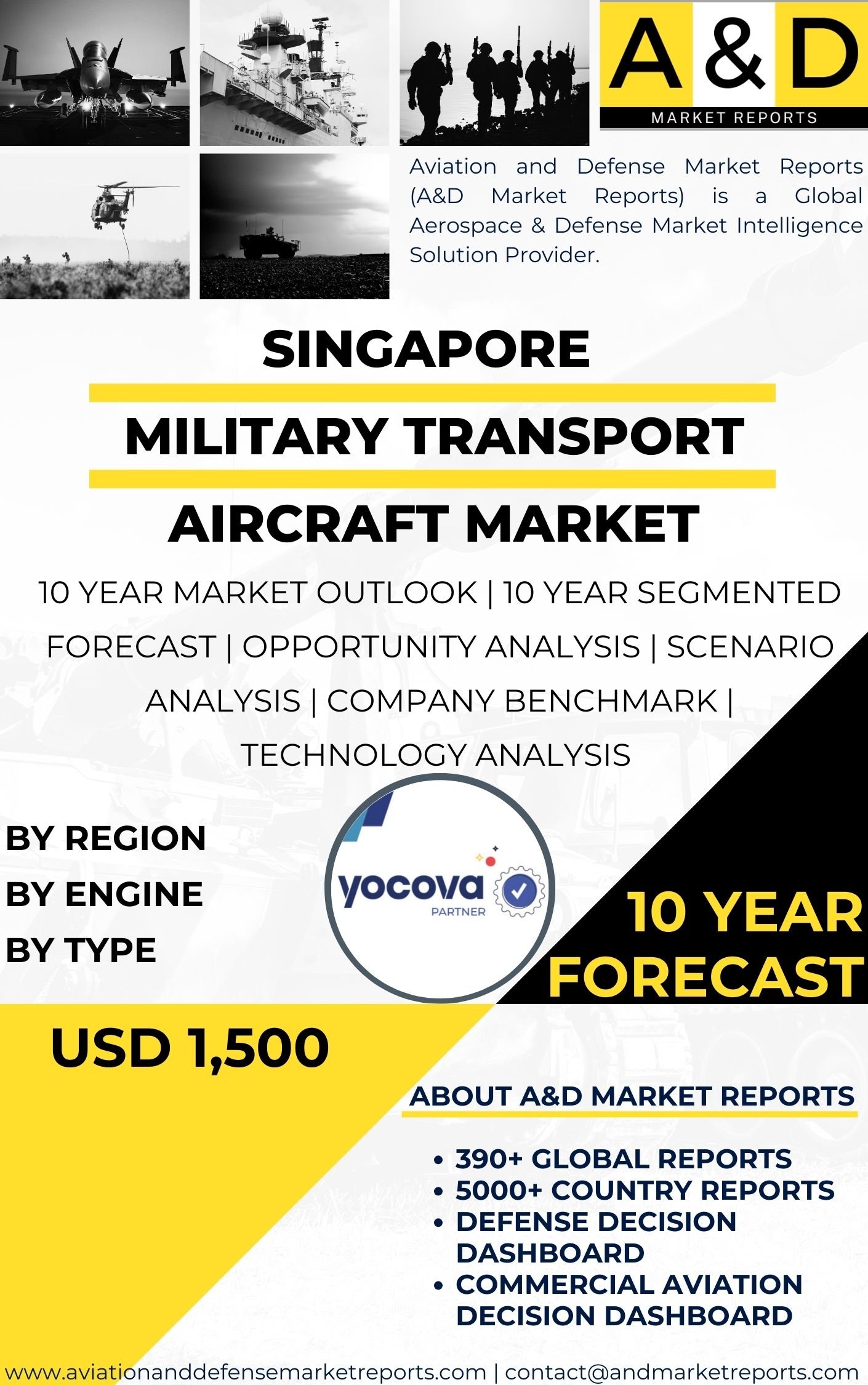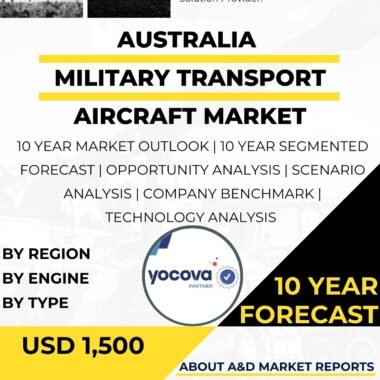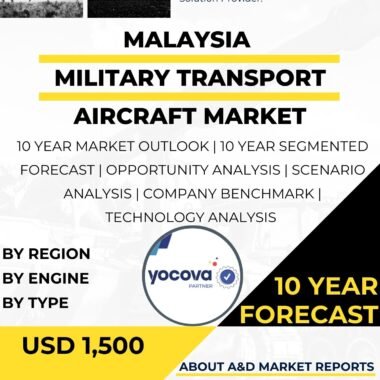Description
Singapore Transport Aircraft Market has grown steadily over the years. This growth is driven by the nation’s strategic location as a major transportation hub, its efforts to strengthen defense capabilities, and its thriving aerospace industry. Transport aircraft play a crucial role in logistics, air mobility, and military operations. This overview examines the market’s key drivers, major players, applications, challenges, and future outlook.
Strategic Location and Growing Air Connectivity
Singapore’s position in Southeast Asia makes it an essential link between the East and the West. Changi Airport, one of the world’s busiest aviation hubs, serves as a vital gateway for both passengers and cargo. As global trade and air travel continue to expand, the demand for transport aircraft has risen accordingly. This growth supports Singapore’s ambition to maintain its role as a leading regional and global aviation center.
Role of Transport Aircraft in Defense Modernization
In addition to civil aviation, transport aircraft are critical to Singapore’s defense operations. They enable rapid deployment of troops, equipment, and humanitarian aid during emergencies. The Republic of Singapore Air Force (RSAF) has prioritized the modernization of its airlift capabilities by investing in advanced platforms such as the C-130 Hercules and Airbus A330 Multi-Role Tanker Transport (MRTT). These efforts reflect Singapore’s ongoing commitment to operational readiness and regional security.
Expanding Aerospace Industry and Industrial Support
Singapore’s dynamic aerospace sector has become a cornerstone of national development. The country actively promotes aircraft maintenance, repair, and overhaul (MRO), manufacturing, and engineering services. As transport aircraft operations grow, they strengthen the local aerospace ecosystem—creating skilled jobs, fostering innovation, and enhancing technological expertise.
Major Industry Players and Collaborations
Several leading global aerospace firms play a significant role in Singapore’s transport aircraft market. Through partnerships with international manufacturers, Singapore gains access to state-of-the-art technologies, maintenance expertise, and training capabilities. Additionally, local aerospace companies contribute through MRO services and aircraft modifications, increasing the nation’s self-reliance in aviation support operations.
Key Applications: Civil, Military, and Humanitarian
Transport aircraft in Singapore serve multiple applications.
Civil Aviation: They function as passenger carriers, freighters, and cargo planes that support Changi Airport’s massive throughput.
Military Airlift: The RSAF relies on transport aircraft for logistics, troop deployment, and regional operations.
Humanitarian Relief: Singapore frequently participates in global disaster relief efforts, using transport aircraft to deliver essential aid swiftly and effectively.
Challenges Facing the Market
Despite its strengths, the market faces several challenges. The most pressing issue is intense competition in global aviation, where efficiency and sustainability are key differentiators. Airlines seek next-generation aircraft that reduce fuel costs and emissions, requiring continual fleet upgrades.
Furthermore, the COVID-19 pandemic severely disrupted air travel, impacting airlines, manufacturers, and MRO providers alike. Lastly, high acquisition and maintenance costs for modern aircraft remain a financial constraint, particularly as technology continues to evolve rapidly.
Future Outlook and Growth Prospects
Looking ahead, the market’s long-term prospects remain strong. As global trade and passenger traffic recover, demand for transport aircraft is expected to increase. Singapore’s continued investment in aerospace technology and its collaboration with international partners will further boost industry growth.
Emerging trends such as fuel-efficient engines, green aviation initiatives, and advanced digital connectivity will shape the next generation of transport aircraft, enhancing efficiency and sustainability.
Conclusion
The Singapore transport aircraft market stands at the intersection of strategic geography, defense modernization, and industrial innovation. Despite challenges related to competition, pandemic recovery, and operational costs, Singapore’s strong policy framework and commitment to aerospace development position it for sustained growth. With continuous technological advancements and international collaboration, the market’s future looks increasingly promising.




